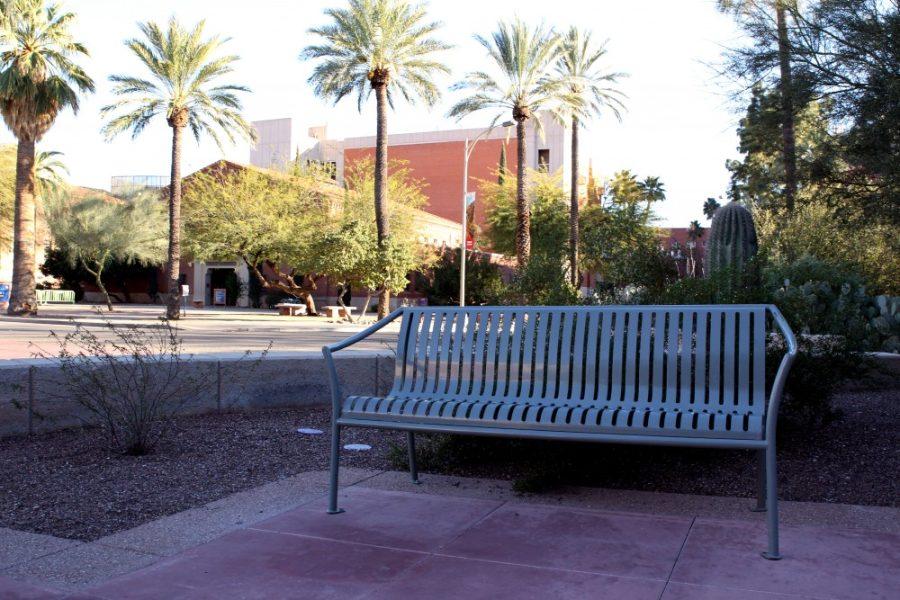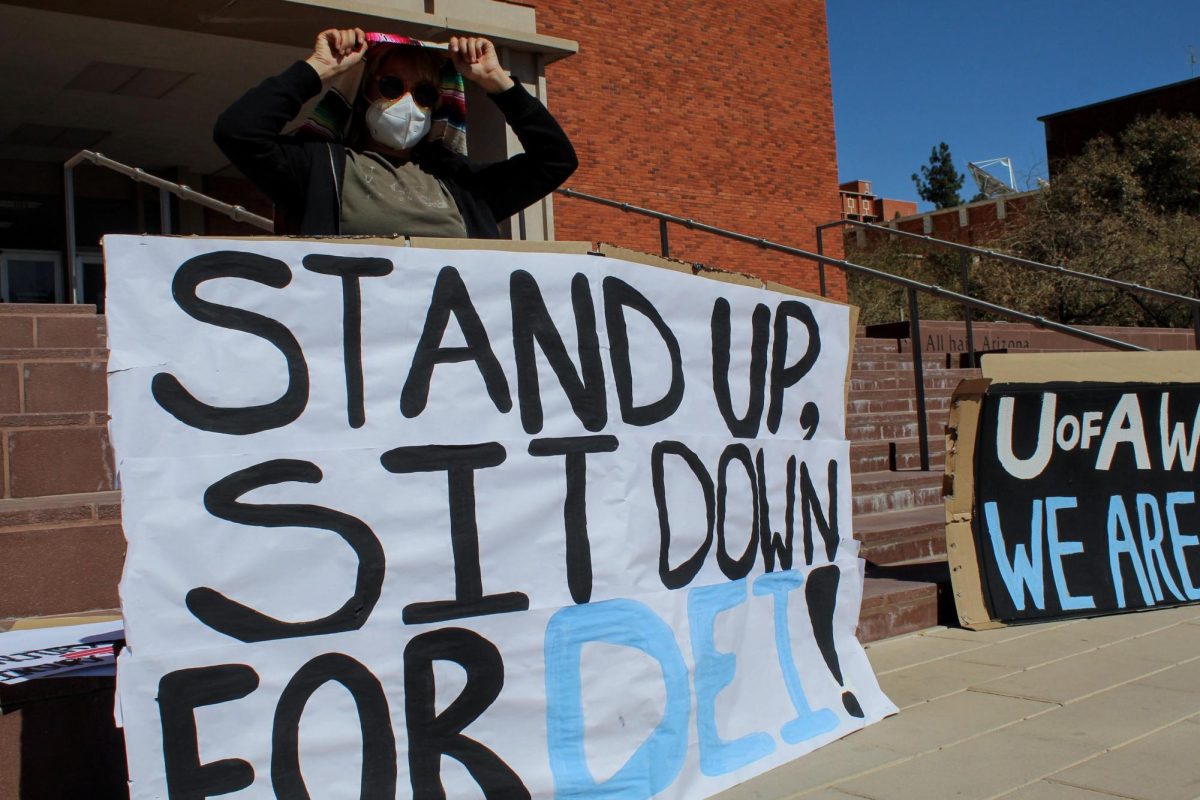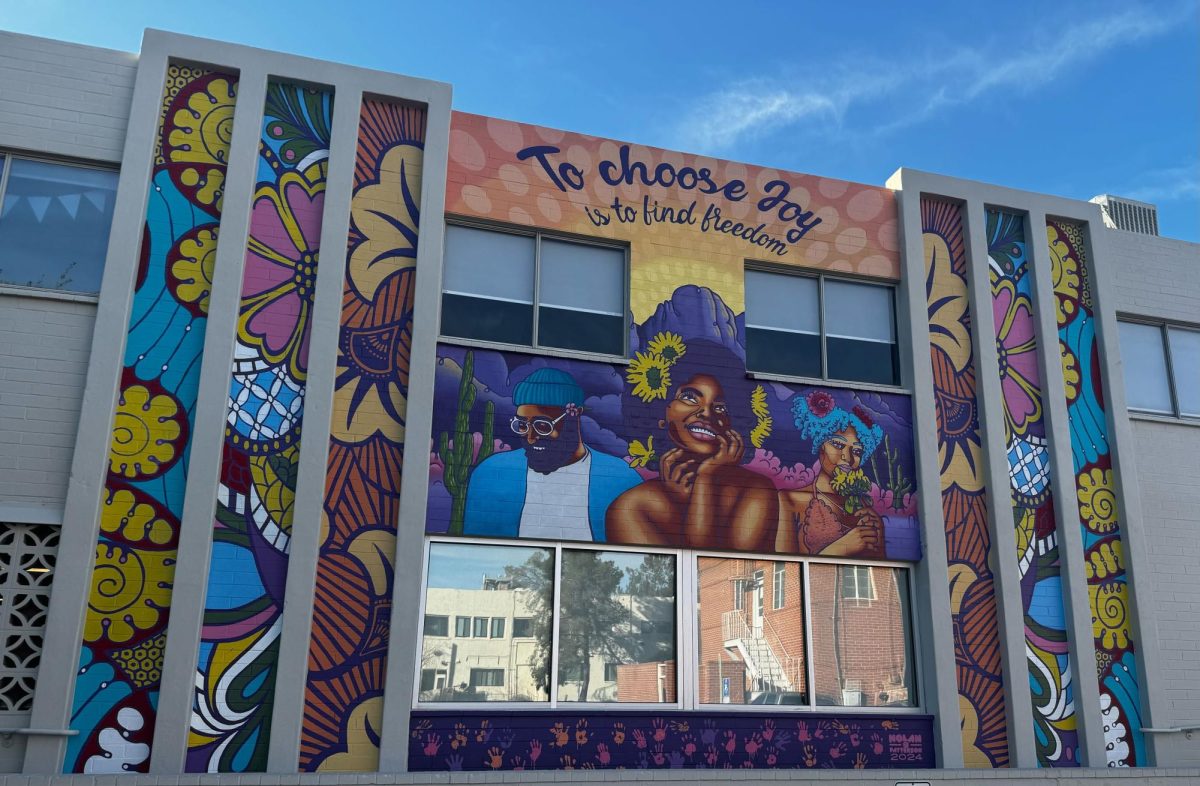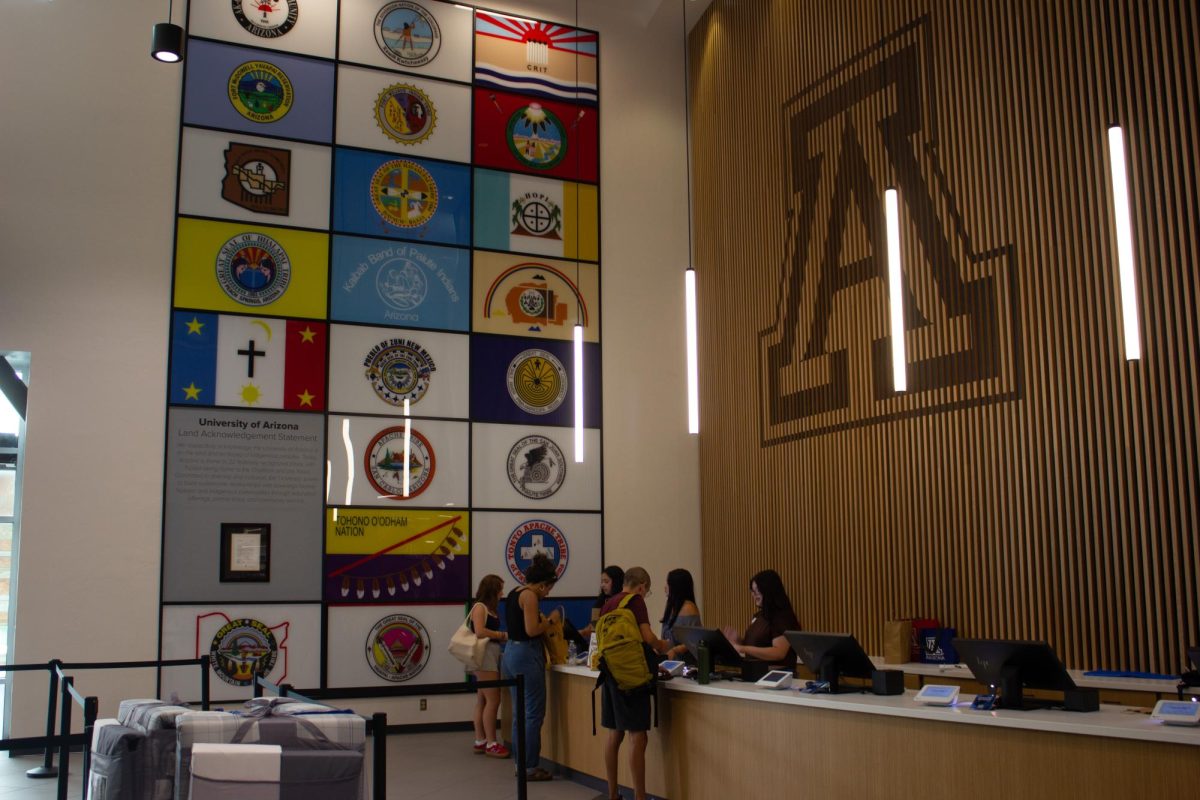Arizona Rep. Anthony Kern recently sponsored HB 2615, which would eliminate free speech zones on public college campuses and make the public parts of campuses open to free speech. The bill would apply to both public universities and community colleges in Arizona.
The free speech zones already present on campuses would be made into memorials or monuments, according to the bill.
There are no designated areas for free speech on the UA campus, according to Kathy Adams Riester, associate dean of students.
Free speech can be practiced in most of the outdoor public spaces on campus, including the UA Mall, the area around the Park Student Union and the Highland Commons.
“We view speech as being able to happen in multiple locations around campus, so it’s all about kind of time, place and manner, so what activities are going on, what amount of space is open,” Riester said. “We like to really be able to give people the opportunity if they want to express themselves to do it in multiple locations on campus.”
The UA doesn’t require people to reserve the areas where they practice free speech as long as they are in the outside public forum areas, according to Riester.
Those with tables and other physical items, however, are encouraged to reserve space so that they don’t interfere with others who have already reserved specific areas.
“We’ll work with you, but some days the whole entire mall is taken up, so it’s not really fair to everyone who’s planned their activities for someone who has a spur-of-the-moment thing to interrupt everyone else’s activities,” Riester said.
When people practice their speech without first making a request for space, like Dean Saxton, more commonly known as Brother Dean, it works fine, unless the speech is too loud or creates a crowd that infringes on the space of other events, according to Riester. When this happens, the speaker can be asked to move to a different area to practice their speech.
Free speech on campus hasn’t caused a disruption, according to Riester. She said she thinks the legislation indicates the free speech zones are pretty limiting.
“We want to make sure to the extent possible that we’re helping to uphold people’s rights to expressing themselves in an appropriate manner on campus,” she said.
Some people—like Bernie Sanders’ campaigner Maxine Krasnow—think the entire campus should be a free speech zone.
“The way that people communicate is through nonviolent communication for us to be able to agree to disagree and to be able to have that kind of interchange,” Krasnow said. “That is really the way people learn to think.”
Riester said the effects of the bill would be different depending on the school itself, but she doesn’t think it will have a strong impact on the UA due to the lack of free speech zones on campus already.
“I think sometimes we get asked why we don’t have [a free speech zone] and why don’t people have to go to a free speech zone, and I think our answer is that we want to give as much flexibility as possible to express themselves and exercise their free speech rights within the guidelines that we have set up for that,” Riester said.
She thinks it’s possible the bill will be enacted, but she is also thinking about other aspects of the university life as well.
“I guess part of me hopes our legislators have more important business like approving the budgets of the state university that they’d be working on instead of working on a bill for speech, but there’s many important issues out there,” Riester said.
Follow Ava Garcia on Twitter.









